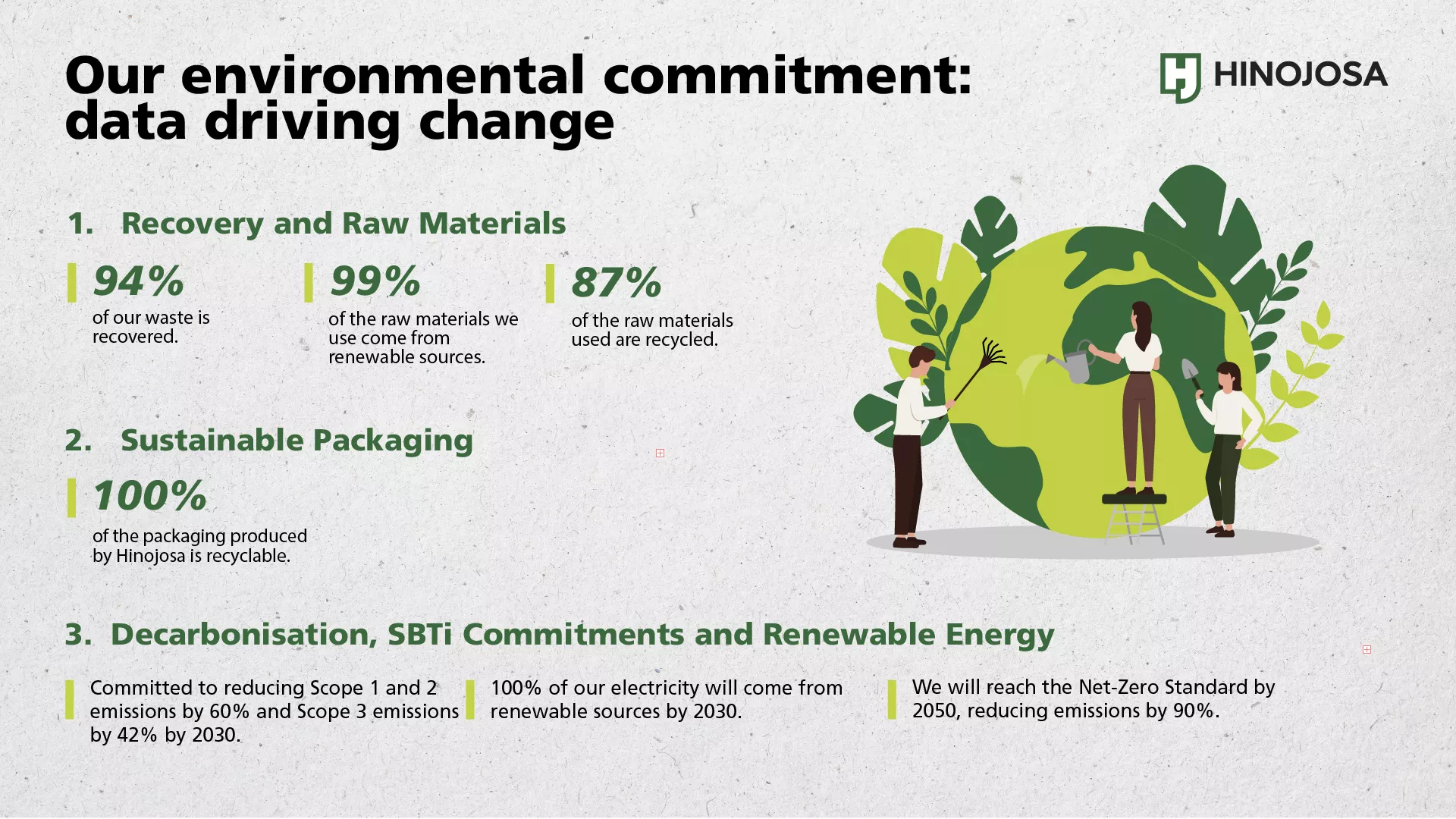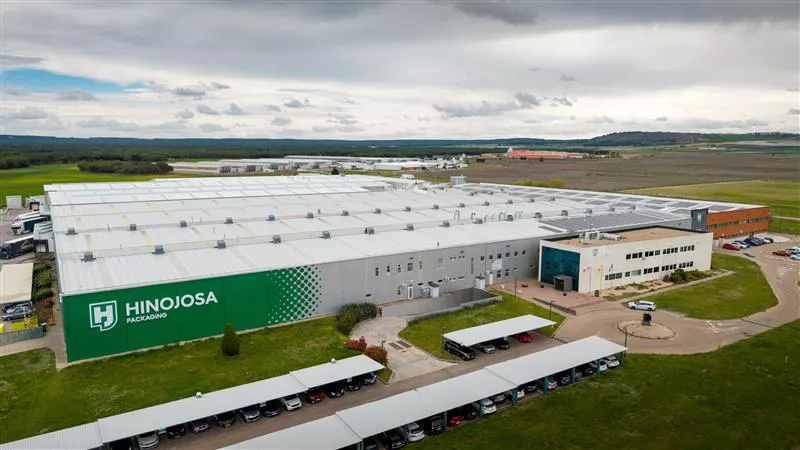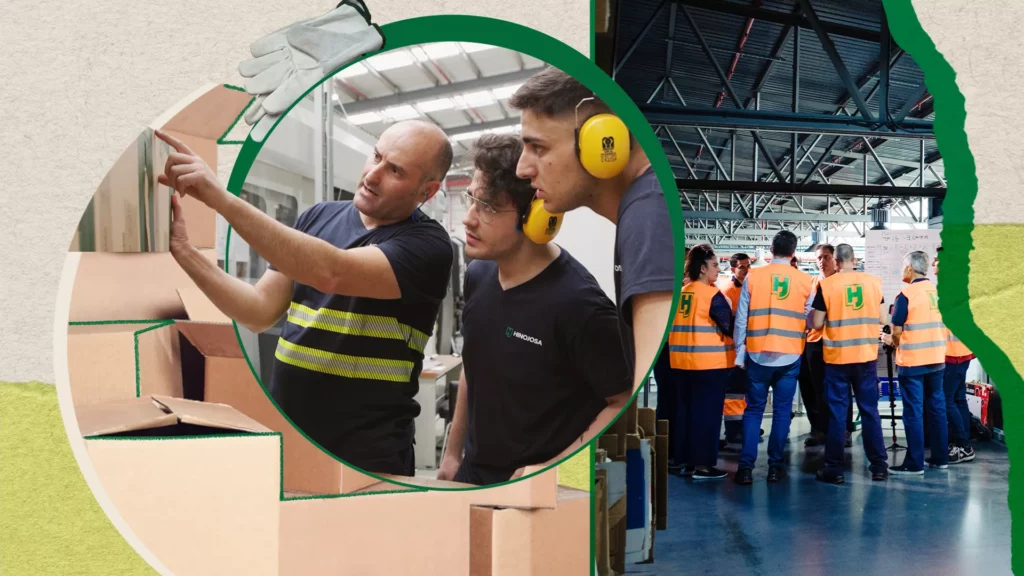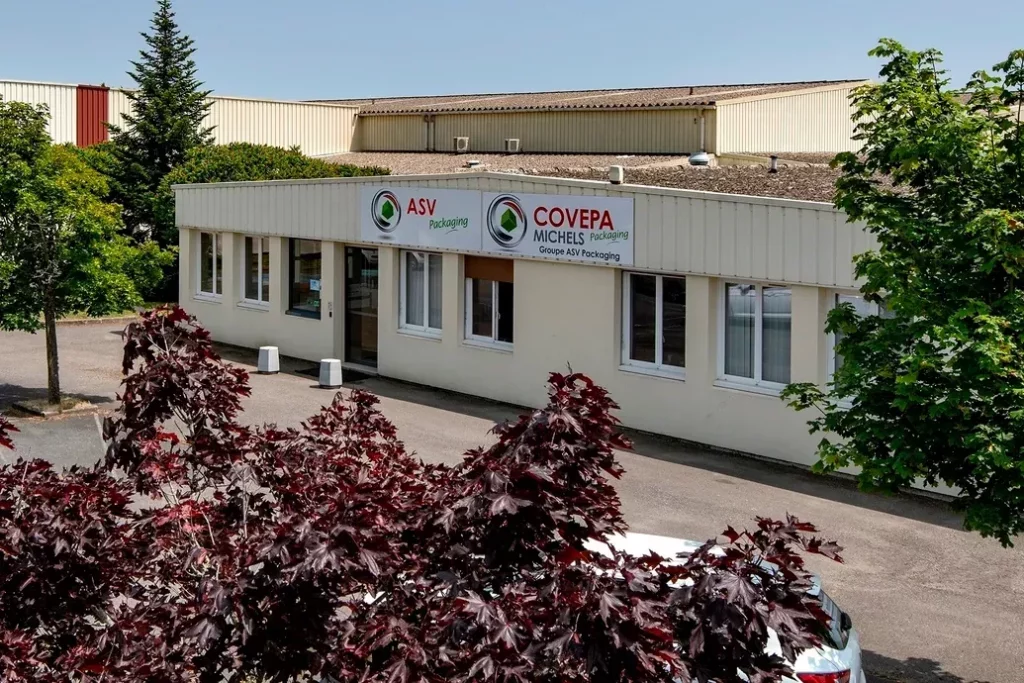Governments, citizens, institutions, and companies share a common responsibility: to move toward a fairer, more balanced, and more respectful model for our environment. Each within their own sphere, but with a shared purpose: to guarantee a sustainable future for the next generations.
Faced with the common challenge of keeping our planet in balance, the commitment of companies is essential. Far from being an add-on, sustainability must be integrated as a strategic axis that runs through all of their activities. Not only because the environment — and society — demand it, but because it represents a real opportunity to innovate, create value, and build solid relationships with different stakeholders.
Being sustainable today: more than reducing impact, it’s about transforming the model
Talking about environmental care no longer means just reducing emissions, recycling more, or using fewer resources. Today, being sustainable involves a profound transformation of how products and services are conceived, produced, and delivered. It means designing with the entire product life cycle in mind, collaborating with a responsible supply chain, promoting energy efficiency, and generating a positive impact on communities. And all of this, with verifiable data, constant commitment, and objectives aligned with major global challenges.
More and more organizations understand that their impact is not measured only in tons or emissions, but also in the quality of employment they generate, in how they influence their immediate surroundings, and in how they contribute to a livable future for all.
Hinojosa: sustainability with purpose, innovation with impact
On this path toward a business model that is more respectful of the planet, Hinojosa has strengthened its commitment by aligning its goals with the most demanding international standards. A clear example is the validation of its climate targets by the Science Based Targets initiative (SBTi), which certifies that its emissions reduction strategy is in line with scientific evidence and global consensus. A key step that reinforces the company’s climate ambition and its willingness to lead by example.
Taking 2020 as a reference year, Hinojosa has committed to reducing its absolute Scope 1 and 2 emissions — those associated with fossil fuel consumption and electricity use — by 60% by 2030. In parallel, it will reduce Scope 3 emissions — which include, among others, those from transportation, distribution, and purchased goods — by 42%. In addition, the company aims for 100% of the electricity it consumes to come from renewable sources by 2030, and for 80% of emissions from its supply chain to also be aligned with SBTi standards by 2028. This comprehensive approach, which goes beyond its own operations, reflects a transversal and collaborative vision of change.
This climate commitment is complemented by a real transformation of its processes and products. Currently, 99% of the raw materials it uses come from renewable sources, and 87% are recycled, which reflects a strong commitment to a responsible value chain from the source. Moreover, 100% of the packaging it produces is recyclable, actively contributing to closing the materials loop and advancing toward a truly circular economy.
For Hinojosa, caring for the environment is not a destination, but a way forward: innovating, transforming processes, and collaborating with all actors in the ecosystem to build, together, a more balanced and resilient future.
A shared commitment for a sustainable future
World Environment Day reminds us that the planet’s future is not written: it is built every day through the decisions we make. Faced with climate and social challenges, it is necessary to move from commitment to action, joining efforts among citizens, institutions, and businesses.
Hinojosa demonstrates that it is possible to move toward more sustainable production models without giving up growth — but rather by understanding it through a new logic: that of positive impact, purposeful innovation, and collaboration as a driver of change.
Because caring for the planet is not an option — it is a shared commitment. And only by walking together — with responsibility, ambition, and coherence — can we ensure a livable tomorrow for everyone.



